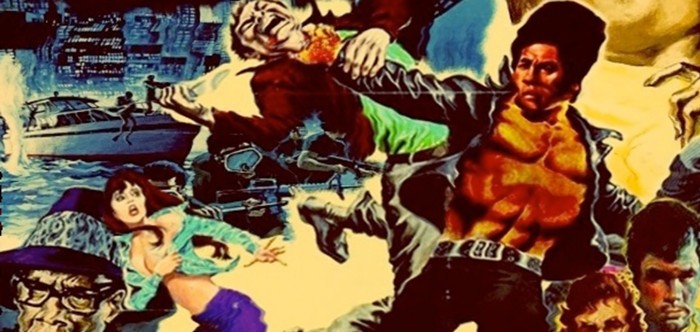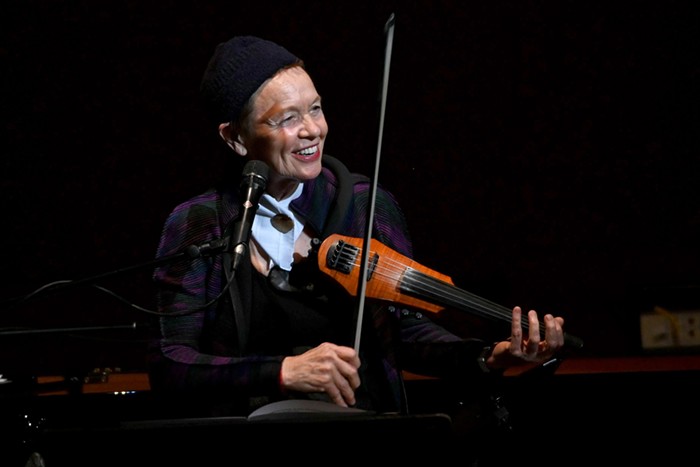A CHANCE EMAIL lit up a chain reaction in the Portland music scene. Eduardo Praça and Thiago Klein were not the most obvious candidates to analyze and take advantage of the inner workings of the Portland music community. The two make up the band Quarto Negro—a Brazilian band of little acclaim—and several months ago, Praça sent a spur-of-the-moment email to the Helio Sequence's agent to find out who produced their music. Brandon Summers, singer for the Helio Sequence, responded. After a casual conversation, Quarto Negro decided to record their next album in Portland at the Helio Sequence's studio.
"We've never taken on anybody's full-length but our own," says Summers. He explains he was somewhat hesitant to commit to the project, as it seemed unlikely to ever come to fruition. But he adds that he's always willing to listen to music sent to him. "We look into anything, because there's so much good music out there."
"We'd like to see the studio. When can we come by?" Praça asked. Assuming he was kidding, Summers told them to come by the following Monday.
They did.
To make the trip, Praça and Klein wrote jingles, sold music equipment and their cars, and used up their parents' frequent flyer miles. "We didn't know too much about the city, [about] it being a city of musicians," says Klein. "We'd also sent an email to Sweden, but we preferred Portland." Praça and Klein come from São Paulo, a city of 19 million that they claim has the same amount of musicians as Portland.
Enter Daniel Barosa and Nikolas Maciel, longtime friends of Quarto Negro. Barosa and Maciel make films and music videos, and when they heard the band would be recording in Portland, it was obvious they had to come along. Once they arrived and started filming, "the documentary started to become something bigger, that wasn't just about Quarto Negro," says Maciel. As often happens in Portland, the band and film crew quickly got to know a lot of other musicians, and they started interviewing them about the city. They began work on a documentary about the band's experience called GRU-PDX (GRU being the airport code for São Paulo).
The Quatro Negro album was recorded on a slim budget over the course of one month, and it features special guest appearances from Benjamin Weikel of the Helio Sequence on drums, Justin Harris of Menomena on bass, and help from Kathy Foster of the Thermals. The album might not be what you'd expect from Brazilians. They let me listen to a few songs; it's actually psychedelic rock in Portuguese, and it's goddamn good. "The music itself is not bossa [nova]," says Summers, quipping that he thought he'd have to learn how to record trumpets and horns before he ever listened to the band's music, assuming Quatro Negro played traditional Brazilian music.
The group plans to release the album after the World Cup, because otherwise no one in Brazil will have time to talk about it. The film will hopefully be released early in 2014, as long as they can get the funds together to do it right.
I asked the band what they thought about Portland, now that they've been here for a while. Klein, who might be the only vegan in Brazil, loves the food and Olympia beer. (In Brazil, the beer is always "watery" due to the heat.) Summers and Klein connected over the fact that neither are huge fans of IPAs (a hang-able offense in Portland). Praça loves it here, and got a lot of what he was hoping for, but had trouble adjusting to the small-town vibe at first. He explained that things close a lot earlier here, adding that you can go to the bar or buy a refrigerator at 4 am in Brazil, if you want.
Both Brazilians make a little fun of Portland, too, highlighting our tendency to think going a couple miles for something—or crossing a bridge, ever—is a big deal. They add, though, that they started to avoid crossing the bridges, too. Summers points out how confused people were when he told them about the Brazilians, saying Portlanders assumed they would be a couple of dark-skinned dudes who do capoeira, but he explained to them they're light-skinned guys who like Portland music, and that, "Thiago has red hair."
Meanwhile, Chris Cantino—former manager of Into the Woods—got involved with the GRU-PDX film project, which includes interviews with bands like Portugal. The Man, Radiation City, Wild Ones, Brainstorm, the Thermals, Menomena, Red Fang, the Dandy Warhols, among others. It also, obviously, documents the recording process Quarto Negro went through. Maciel describes the film as, "a cinematographic onrush of these guys from Brazil putting the efforts of their lives (and betting all the money they didn't have) to record an album in one of the most hip cities of the world."



















